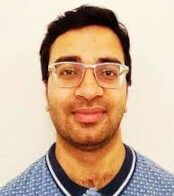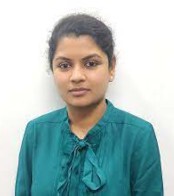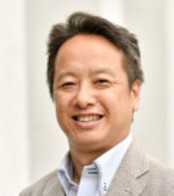Mitradip Bhattacharjee, PhD, Indian Institute of Science Education and Research (IISER), India
 Mitradip Bhattacharjee (Senior Member, IEEE) is an Assistant Professor with the Electrical Engineering and Computer Science Department, Indian Institute of Science Education and Research (IISER) Bhopal, India, where he is leading the i-Lab Research Group. His research interests include electronic sensors and systems, biomedical engineering, bioelectronics, flexible/printed and wearable electronics, wireless systems, IoT, micro/nanoelectronics, and reconfigurable sensing antenna. He also has authored several book chapters/books to date. He is the recipient of several awards such as the Marie-Curie Seal of Excellence Award by the European Commission in 2019 and, the Gandhiyan Young Technological Innovation Award at Rashtrapati Bhavan in 2016 among others. He served as the chair of the IEEE Sensors Council Young Professionals in 2022. He served as the guest editor and in the editorial team of various journals such as IEEE JFLEX, IEEE Sensors Letters, and IEEE Sensors Alert. He is also the Associate Web EiC of the IEEE Sensors Council. Visit www.theilabs.com for more details.
Mitradip Bhattacharjee (Senior Member, IEEE) is an Assistant Professor with the Electrical Engineering and Computer Science Department, Indian Institute of Science Education and Research (IISER) Bhopal, India, where he is leading the i-Lab Research Group. His research interests include electronic sensors and systems, biomedical engineering, bioelectronics, flexible/printed and wearable electronics, wireless systems, IoT, micro/nanoelectronics, and reconfigurable sensing antenna. He also has authored several book chapters/books to date. He is the recipient of several awards such as the Marie-Curie Seal of Excellence Award by the European Commission in 2019 and, the Gandhiyan Young Technological Innovation Award at Rashtrapati Bhavan in 2016 among others. He served as the chair of the IEEE Sensors Council Young Professionals in 2022. He served as the guest editor and in the editorial team of various journals such as IEEE JFLEX, IEEE Sensors Letters, and IEEE Sensors Alert. He is also the Associate Web EiC of the IEEE Sensors Council. Visit www.theilabs.com for more details.
Sushmee Badhulika, PhD, Indian Institute of Technology (IIT), India
 Sushmee is a Professor at the Department of Electrical Engineering, Indian Institute of Technology (IIT), Hyderabad, India. She received her Master’s and PhD degrees from University of California Riverside, USA. She works in the areas of flexible and wearable electronics; sensors and supercapacitors which are funded by the Department of Science and Technology India, Indian Space Research Organization, Defense Research and Development Organization and Japan International Cooperation Agency etc. She is the recipient of several awards and fellowships, including Young Engineer award from all 4 National Academies of Science and Engineering in India and Suzuki Foundation Faculty Fellowship, Japan. She is the Associate Editor of Flexible and Printed Electronics, Applied Nanoscience and Sensors & Actuators Reports.
Sushmee is a Professor at the Department of Electrical Engineering, Indian Institute of Technology (IIT), Hyderabad, India. She received her Master’s and PhD degrees from University of California Riverside, USA. She works in the areas of flexible and wearable electronics; sensors and supercapacitors which are funded by the Department of Science and Technology India, Indian Space Research Organization, Defense Research and Development Organization and Japan International Cooperation Agency etc. She is the recipient of several awards and fellowships, including Young Engineer award from all 4 National Academies of Science and Engineering in India and Suzuki Foundation Faculty Fellowship, Japan. She is the Associate Editor of Flexible and Printed Electronics, Applied Nanoscience and Sensors & Actuators Reports.
Kris Myny, PhD, KU Leuven, Belgium
 Kris Myny (Senior Member, IEEE) received the Ph.D. degree in electrical engineering from KU Leuven, Leuven, Belgium, in 2013. He is currently an Associate Professor with KU Leuven and a Guest Professor with imec. He specializes in circuit design for flexible thin-film transistor applications. His work has been published in numerous international journals and conferences, including Nature, Nature Electronics and several ISSCC contributions. Dr. Myny served a member of the Young Academy of Belgium from 2019 to 2024. He was listed as one of the Belgium’s top tech pioneers by the business newspaper De Tijd and received in 2018 the European Young Researcher Award for design on thin-film electronics. He was a recipient of two prestigious ERC Grants from the European Commission: an ERC Starting Grant from 2017 to 2021 enabling breakthrough research in thin-film transistor circuits (FLICs) and an ERC Consolidator Grant from 2023 to 2028 on the development of a universal interposer layer on top of Si CMOS (ORISON). He also serves as the Track Chair for the IEEE FLEPs conference and acts in the editorial board of the IEEE JOURNAL ON FLEXIBLE ELECTRONICS.
Kris Myny (Senior Member, IEEE) received the Ph.D. degree in electrical engineering from KU Leuven, Leuven, Belgium, in 2013. He is currently an Associate Professor with KU Leuven and a Guest Professor with imec. He specializes in circuit design for flexible thin-film transistor applications. His work has been published in numerous international journals and conferences, including Nature, Nature Electronics and several ISSCC contributions. Dr. Myny served a member of the Young Academy of Belgium from 2019 to 2024. He was listed as one of the Belgium’s top tech pioneers by the business newspaper De Tijd and received in 2018 the European Young Researcher Award for design on thin-film electronics. He was a recipient of two prestigious ERC Grants from the European Commission: an ERC Starting Grant from 2017 to 2021 enabling breakthrough research in thin-film transistor circuits (FLICs) and an ERC Consolidator Grant from 2023 to 2028 on the development of a universal interposer layer on top of Si CMOS (ORISON). He also serves as the Track Chair for the IEEE FLEPs conference and acts in the editorial board of the IEEE JOURNAL ON FLEXIBLE ELECTRONICS.
Gordon Cheng, PhD, Technical University of Munich, Germany
 Prof. Gordon Cheng has made pioneering contributions in Humanoid Robotics, Neuroengineering, and Artificial Intelligence for the past 20 years. Since 2010, Gordon Cheng has held the Chair Professorship in Cognitive Systems at the Technical University of Munich (TUM). He is the Center of Competence Neuro-Engineering coordinator in the Department of Electrical and Computer Engineering and speaker of the newly established Elite Master of Science program in Neuroengineering (MSNE) of the Elite Network of Bavaria. He has held leadership positions internationally, playing significant roles in numerous large projects worldwide. He co-founded three high-tech companies (Australia, France, and Germany). He is the co-inventor of 20 patents and has co-authored over 450 technical publications, proceedings, editorials, books, and book chapters. The IEEE acknowledged his interdisciplinary work and named him IEEE Fellow in 2017 for his “contributions to humanoid robotic systems and neurorobotics.” He is the recipient of the prestigious ERC Advanced Grants (in 2023) to undertake work in “Soft-exoskeleton suit To Restore Autonomous Locomotion.” His research interests include NeuroRobotics, Humanoid Robotics, Imitation Learning, Cognitive Systems, Artificial Intelligence and NeuroEngineering.
Prof. Gordon Cheng has made pioneering contributions in Humanoid Robotics, Neuroengineering, and Artificial Intelligence for the past 20 years. Since 2010, Gordon Cheng has held the Chair Professorship in Cognitive Systems at the Technical University of Munich (TUM). He is the Center of Competence Neuro-Engineering coordinator in the Department of Electrical and Computer Engineering and speaker of the newly established Elite Master of Science program in Neuroengineering (MSNE) of the Elite Network of Bavaria. He has held leadership positions internationally, playing significant roles in numerous large projects worldwide. He co-founded three high-tech companies (Australia, France, and Germany). He is the co-inventor of 20 patents and has co-authored over 450 technical publications, proceedings, editorials, books, and book chapters. The IEEE acknowledged his interdisciplinary work and named him IEEE Fellow in 2017 for his “contributions to humanoid robotic systems and neurorobotics.” He is the recipient of the prestigious ERC Advanced Grants (in 2023) to undertake work in “Soft-exoskeleton suit To Restore Autonomous Locomotion.” His research interests include NeuroRobotics, Humanoid Robotics, Imitation Learning, Cognitive Systems, Artificial Intelligence and NeuroEngineering.

